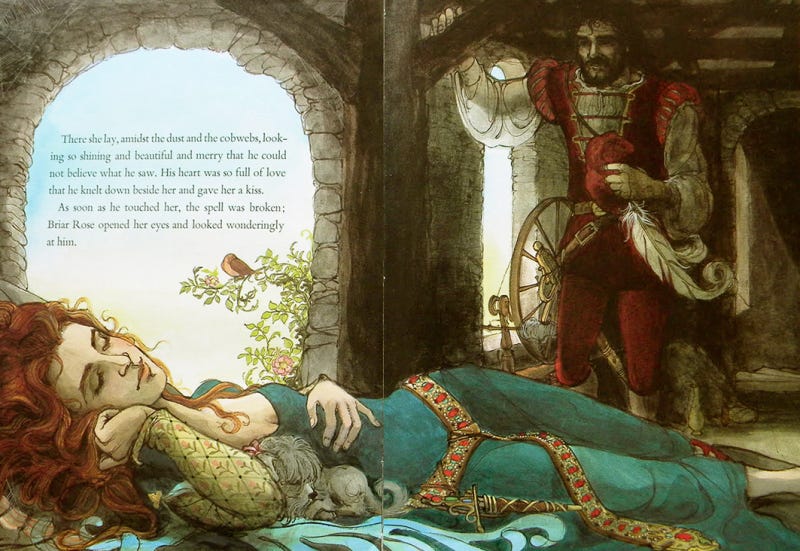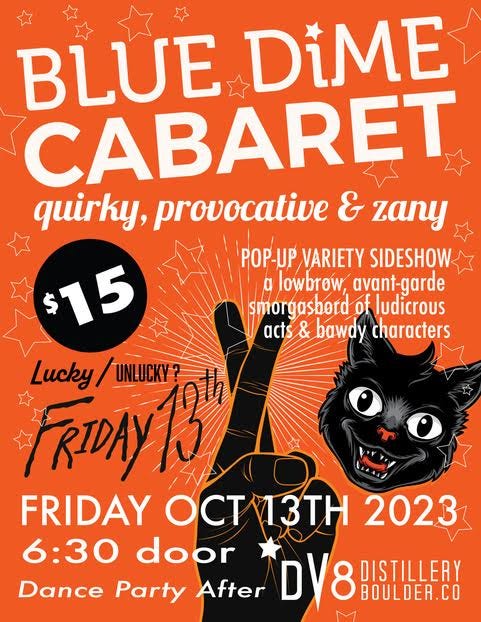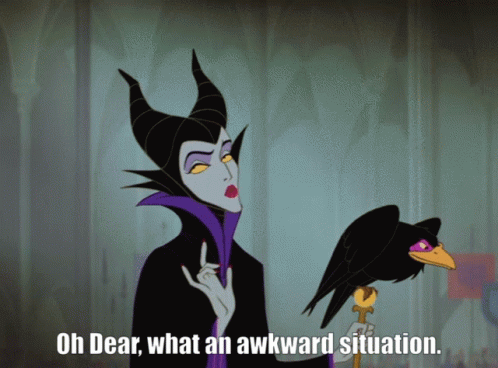Triskaidekaphobia isn’t defined as the fear of the day it is today, it’s the more overarching fear of the number 13 in general. I thought it was a good weird word for the day, though. Even if you don’t follow any particular superstition surrounding Friday the 13th, there’s a level of embedded aversion to it in American culture. I don’t have any real misgivings around the day or the number (3 happens to be my lucky number), but I do notice that people tend to act a bit… moony on this day. Kind of like when it’s a full moon, people act lunatic (which is definitely a thing).
And I don’t follow the horror movies of this same name, either—I haven’t actually seen any of them. You’d think, as a stunt coordinator and fight director, someone who crafts violence as part of my living, that I’d be into horror movies, but nah. Especially slashers—they’re just not my bag, baby. Give me a Victorian murder mystery any day, over the Freddies and the Jasons and the Michael Myerses. And I’ll take a glamorous vampire over an evil clown in an undead hearbeat (no, not sparkly ones. I have taste).
I found a lot of fun weirdness surrounding Friday the 13th, though: often hotels won’t have a 13th floor (in fact, one of the oldest and best haunted houses in my neck of the woods is called the 13th Floor), and supposedly the Knights Templar were disbanded on a Friday the 13th (in 1370, I believe—look, another 13! Oooo…). And of course, if you’re versed in the stories of Christianity, you’ll likely remember that Friday was the day of the week when Jesus was crucified. But also remember that there were 13 people at the Last Supper just before that, so that’s a Friday and a 13 combined that’s not Good News but Bad Luck.
And that story reminds me of an ancient motif that’s central to Sleeping Beauty; you remember:

The king & queen had a new baby girl. For the christening, it was a given thing that they’d invite all the nobles of the fae realm and they’d celebrate the new royal baby with them and give her custom blessings. There were 13 important fae, and one was a baddie (sound familiar? *cough*Judas*cough*). The problem was: the king and queen only owned a set of 12 golden table settings. To serve a faerie on silver? Ooo, not good. A major insult, at the very least. And so, they didn’t invite that 13th faerie, and hoped it would go unnoticed, and that would take care of that. (In the Disney retelling, that 13th faerie was named Maleficent.) You know what happens next.
The snubbed, uninvited faerie crashes the party, curses the princess to prick her finger on a spindle and die on her 16th birthday, and storms out in a huff, deeply insulted. Everyone’s in a tizzy, until the faerie that hadn’t gone yet takes her turn to bless the new princess. She can’t undo the curse as her blessing, since Unlucky 13 is too powerful, but what she can do is alter the curse a little. Instead of dying, the girl will fall into a deep sleep for 100 years. In some variations, she’s not doomed to 100 years but to sleep until her One True Love arrives to kiss her.* I like this older version, though—the poor last faerie can’t really do much but make sure the princess doesn’t die.
There’s something here, about the history and dire importance of hospitality culture from way back when. It’s interwoven in ancient Greek, Roman, and Christian lore too—the unwritten, unspoken, but absolute rules of welcoming strangers in to your home, without question and with generosity. It’s way different in American culture today: many contemporary critics will scoff at the 13th faerie, calling her extra, mocking the depth of her affront at not being invited to a party.** I mean, get over it, lady. Right? But in this ancient time period, that was actually a really big deal. Read any ancient Greek saga, any Middle Eastern fable, the Bible, etc. and you’ll see this deeply ingrained, deeply important hospitality practice in play in nearly every encounter. Not something we’re used to today, in this time of isolated single family homes, and not knowing who our neighbors are. And what would you do, if a stranger knocked on your door out of the blue and asked to stay the night? Yeah, me too.
*Fun Fact: In the earliest versions of this tale, the Prince finds Sleeping Beauty before she wakes and …well let’s just say he does more than just kiss her. She’s not awakened by that, but by the suckling of the twins she’s given birth to in her sleep. Yeah.
It’s a worthy endeavor, to find old gnarly original versions of the tales that Disney has, well, Disneyfied. It can be horrifying, it can be fun. It can be both, like a good horror movie. I recommend the practice.
**or they’ll invent entire ridiculous and unnecessary backstories to add more ‘reasons’ why she holds a grudge. Am I just a curmudgeon, or is this shoddy villain backstory trend just tiresome? Dude, we don’t need our bad guys to have any ‘good’ reason why they do their evil actions—they’re bad guys. Let the actors figure out if they need a bunch of realistic reasons on their own, in their own head (another gripe I have with current especially cinematic storytelling), and let us just be simply scared of Darth Vader, Grendel, Cruella, and Maleficent. And celebrate when they are defeated by the hero or by love (or by the hero’s love). Is that too much to ask?
Happy Friday the 13th!






Maleficent was the first and only character that scared me as a kid in the theater. My Mom said I never got over that so much so that I still won’t go to a scary movie.
Two thoughts:
1) I’ve always suspected Longmont of some long-ago triskaidekaphobia, given that what would normally be 13th Avenue is named Mountain View.
2) In “What Lie Did I Tell?” William Goldman once wrote that spending too much time on a mysterious hero’s backstory was a mistake, and I’ve always felt that the same applied to most villains. Too often, he said, when writers reveal that story, “They make [him] a wimp. They make him a loser. He’s just another whiny asshole who went to pieces when the gods pissed on him. ‘Oh, you cannot know the depth of my pain’ is what that seems to be saying to the audience. Well, if I’m in that audience, what I think is this: Fuck you. I know people who are dying of cancer, I know people who are close to vegetables, and guess what—they play it as it lays.”